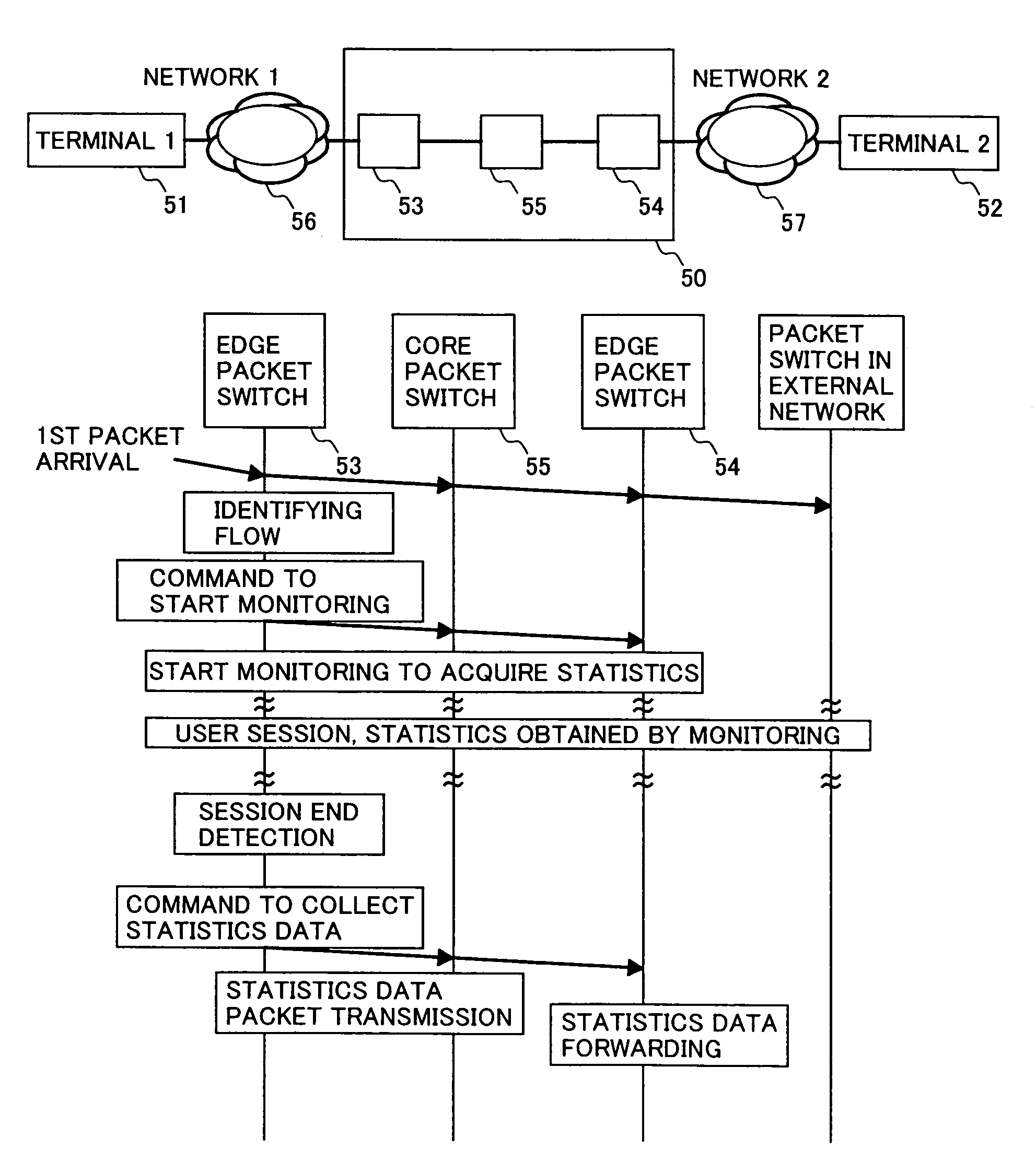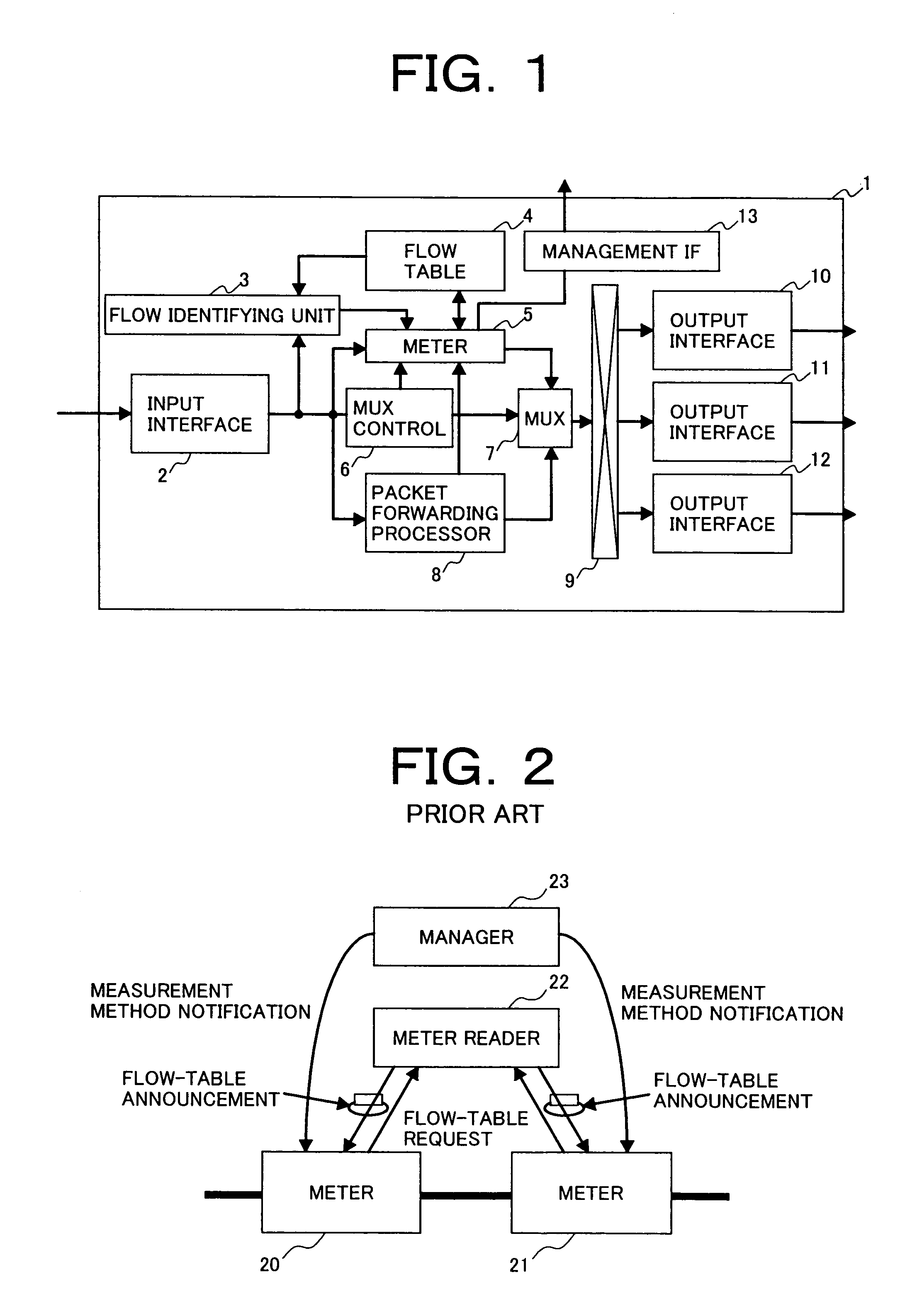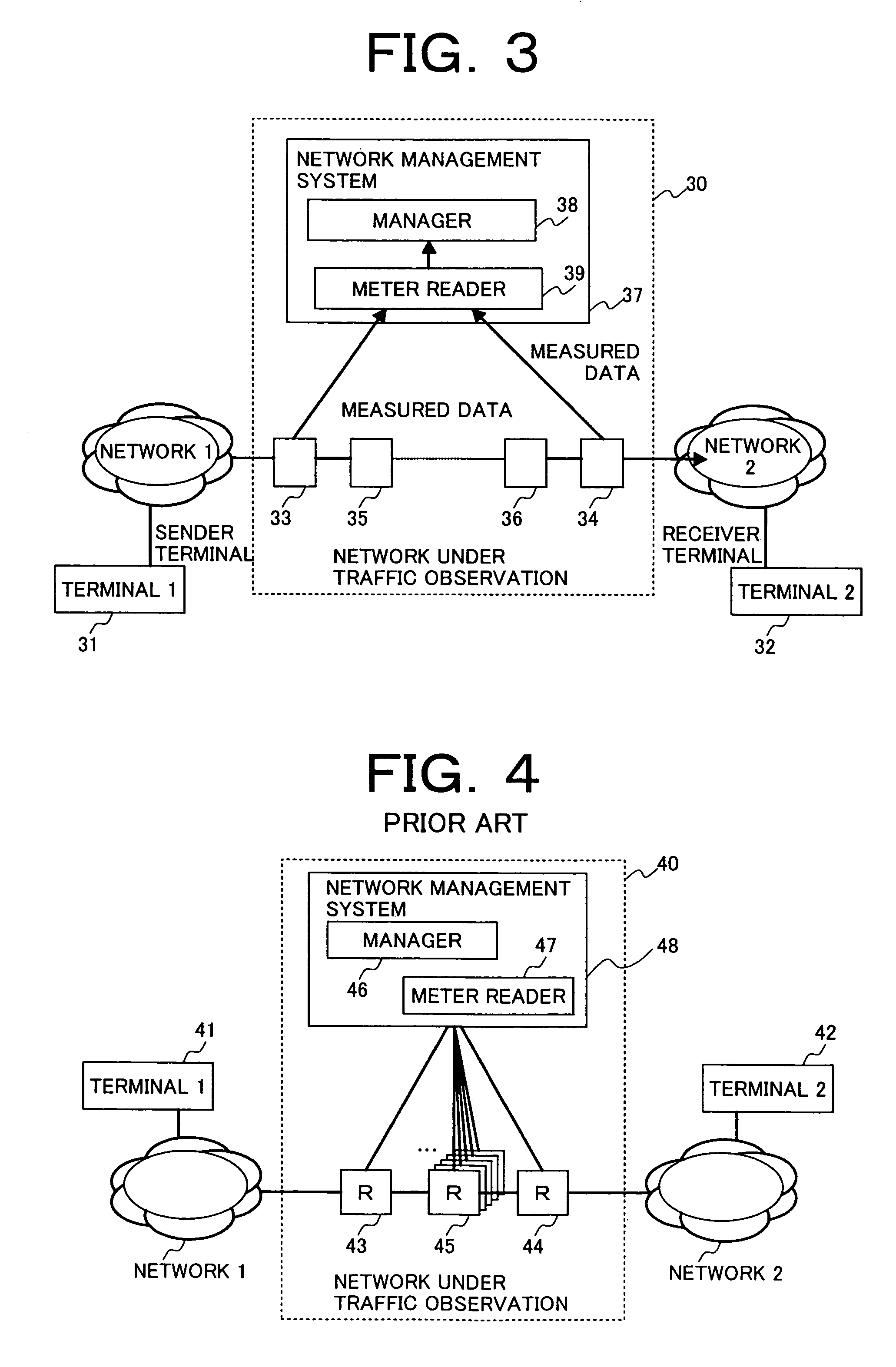Method of monitoring quality of communication for each flow
a communication flow and quality technology, applied in the field of monitoring communication flows, can solve the problems of increasing intra-ip-network traffic, heavy processing load of meter readers, bottlenecks in core network performance, etc., and achieve the effect of improving reliability for users and low cos
- Summary
- Abstract
- Description
- Claims
- Application Information
AI Technical Summary
Benefits of technology
Problems solved by technology
Method used
Image
Examples
Embodiment Construction
[0035]How the invention can be embodied will be explained below with reference to the drawings.
[0036]FIG. 1 is a block diagram showing the configuration of a packet switch that implements monitoring communication flows and collecting statistics data thereof, according to the method of the present invention. A packet switch 1 comprises an input interface (hereinafter referred to as an input IF) 2, a flow identifying unit 3, an packet forwarding processor 8, MUX control 6, a meter 5, a flow table 4, a management interface (hereinafter referred to as management IF) 13, multiplexer 7, a switch 9, and a plurality of output interfaces (hereinafter referred to as output IFs) 10, 11, and 12. Although practical packet switches generally perform two-way transmission operation with input and output IF pairs, the discussion herein focuses on only one-way packet forwarding for easy understanding of the method of the present invention.
[0037]How the packet switch 1 operates will be now explained. ...
PUM
 Login to View More
Login to View More Abstract
Description
Claims
Application Information
 Login to View More
Login to View More - R&D
- Intellectual Property
- Life Sciences
- Materials
- Tech Scout
- Unparalleled Data Quality
- Higher Quality Content
- 60% Fewer Hallucinations
Browse by: Latest US Patents, China's latest patents, Technical Efficacy Thesaurus, Application Domain, Technology Topic, Popular Technical Reports.
© 2025 PatSnap. All rights reserved.Legal|Privacy policy|Modern Slavery Act Transparency Statement|Sitemap|About US| Contact US: help@patsnap.com



